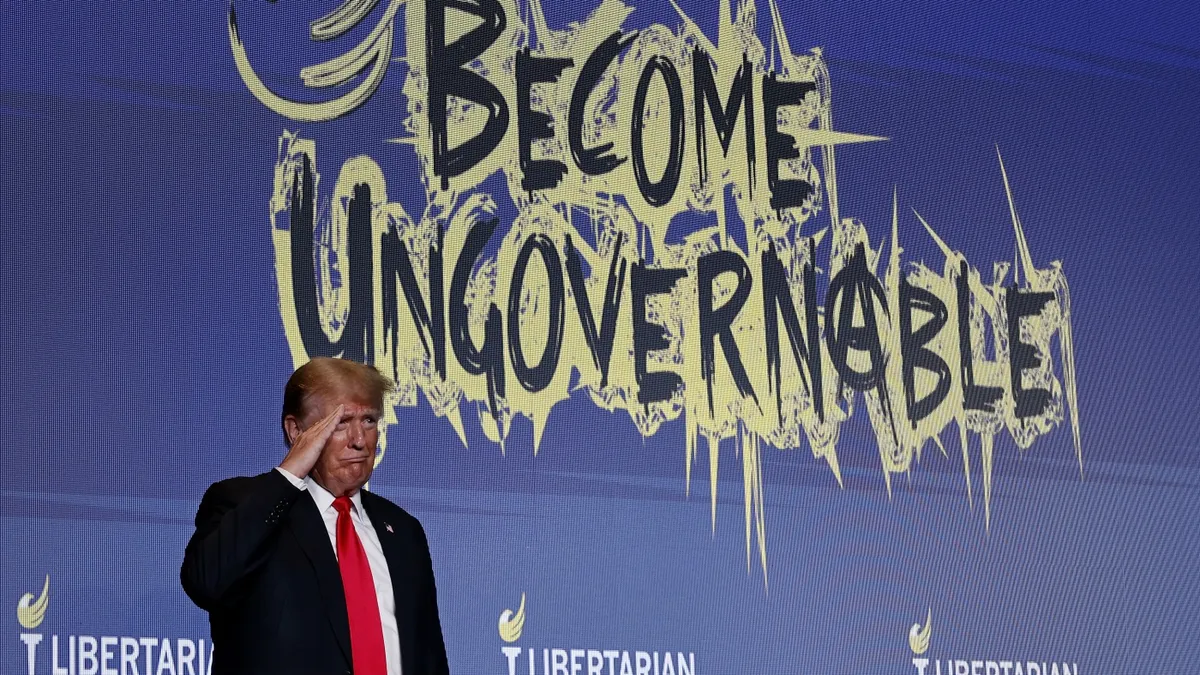
Former President Donald Trump has consistently advocated for escalating the U.S. drug war against Mexican cartels, pushing for tougher penalties for dealers involved in the distribution of fentanyl and other dangerous street drugs within American communities. During a meeting with state governors in February, Trump boldly stated, “I am ready for it, the death penalty, if you deal drugs,” expressing his frustration that drug dealers often receive minimal punishment. However, Trump's actions have sparked significant controversy, particularly following his decision to pardon an increasing number of convicted drug dealers, including the recent clemency granted to Larry Hoover, a 74-year-old inmate serving multiple life sentences for his role as a leader of the Gangster Disciples in Chicago.
Throughout the early months of his second term, Trump has granted clemency to at least eight individuals convicted on federal drug charges. Some of these individuals, including Hoover, have extensive criminal backgrounds involving violent offenses. Jeffrey Singer, a drug policy analyst at the Cato Institute, commented on the conflicting messages emanating from the White House, stating, “There’s a lot of mixed messages and mixed signals.” He noted that while the administration threatens to impose stricter penalties on drug dealers, it simultaneously releases individuals who have committed serious drug-related crimes.
Ron Safer, a former U.S. attorney in Chicago, expressed his shock and dismay at Trump's decision to commute Hoover’s sentence. Hoover led one of the most notorious drug syndicates in the U.S., with operations stretching across 35 states, according to the U.S. Justice Department. Hoover was convicted of numerous serious charges, including murder and the use of firearms while trafficking drugs. Safer emphasized the scale of Hoover's operations, stating, “They sold over $100 million of drugs a year in the city of Chicago alone,” and were responsible for numerous violent acts.
Following Hoover’s commutation, he is expected to be transferred from a federal supermax prison to a state correctional facility in Illinois, where he remains incarcerated due to state-level murder convictions. Despite previous attempts for clemency being overwhelmingly rejected by an Illinois state review board, a White House spokesman indicated that they anticipate state officials will follow the federal government’s lead in releasing Hoover. The spokesman claimed, “There have been many advocates saying the time Hoover served in prison was adequate.”
Trump's clemency for Hoover and other high-profile drug offenders reflects a broader pattern observed during his first term in office. Between 2017 and 2021, he pardoned or commuted the sentences of at least 13 individuals convicted of federal drug crimes, including those linked to violence and major drug trafficking operations. Notably, in 2020, his administration dropped the prosecution of General Salvador Cienfuegos Zepeda, a senior Mexican military official arrested for assisting drug cartels, under pressure from Mexico's government.
Despite the tough rhetoric surrounding drug dealers, some experts and advocates have praised Trump’s use of presidential clemency. Kassandra Frederique, head of the Drug Policy Alliance, remarked that Trump’s clemency decisions offer a crucial lifeline to those affected by the criminalization of drugs, which she described as “ineffective and harmful.” However, Frederique criticized the administration's overall stance on drug policy, emphasizing the stark contrast between individual acts of clemency and the broader tough-on-crime approach.
As President Joe Biden took office, he also issued pardons to thousands of individuals, many of whom were incarcerated for federal drug charges, reflecting his growing unease with the drug war. Drug policy experts have noted the difficulty in discerning a coherent philosophy behind Trump’s clemency decisions. Singer from the Cato Institute pointed out that Trump's pardons often seem transactional, suggesting that they are influenced by powerful individuals or specific political agendas.
During a campaign appearance in 2024, Trump explicitly linked his plan to commute the sentence of Ross Ulbricht, a former tech entrepreneur serving a life term for creating Silk Road, directly to his bid for reelection. His commitment to pardoning Ulbricht was made clear when he declared, “If you vote for me, on day one I will commute the sentence of Ross Ulbricht to a sentence of time served.”
The release of Larry Hoover has garnered mixed reactions, with some notable figures, including the artist Ye (formerly known as Kanye West), expressing gratitude towards Trump for his decision. Ye proclaimed his appreciation for Trump’s actions on social media, highlighting the complex landscape of support and criticism surrounding these clemency decisions. As Trump continues to navigate the contentious issues of drug policy and criminal justice reform, the implications of his decisions will undoubtedly resonate within affected communities across the nation.